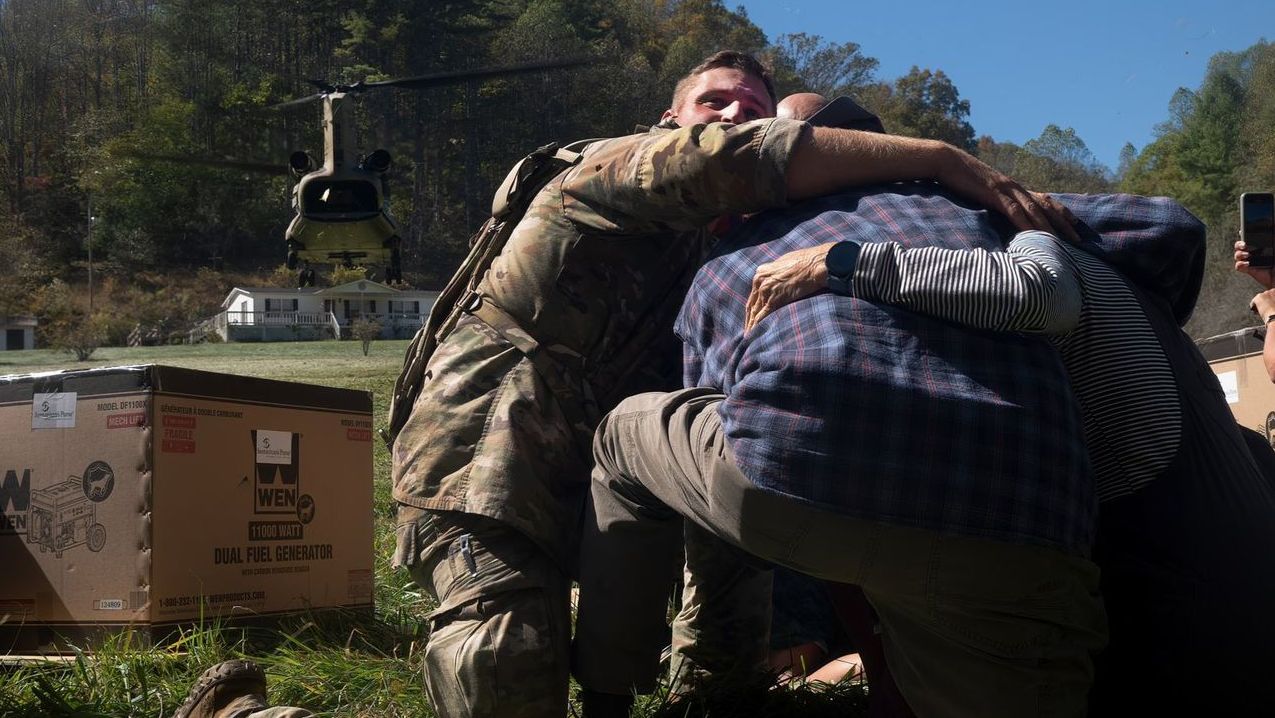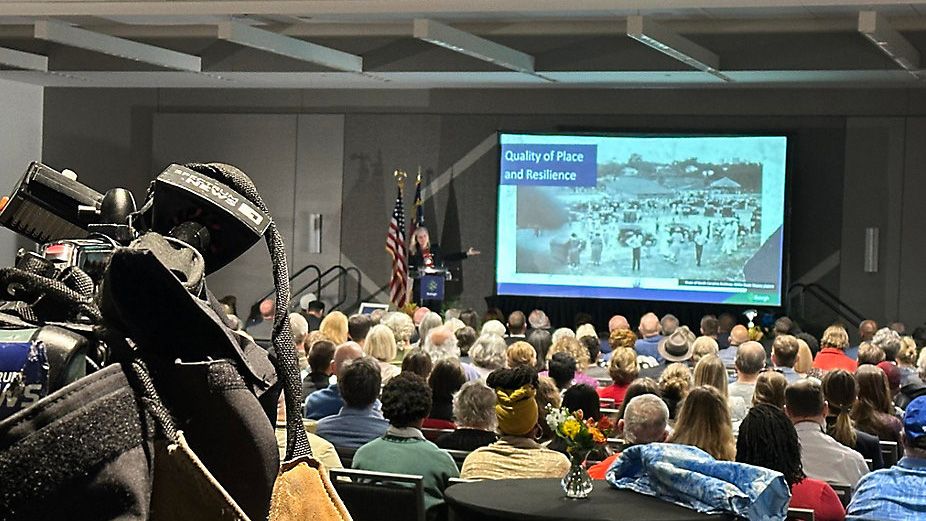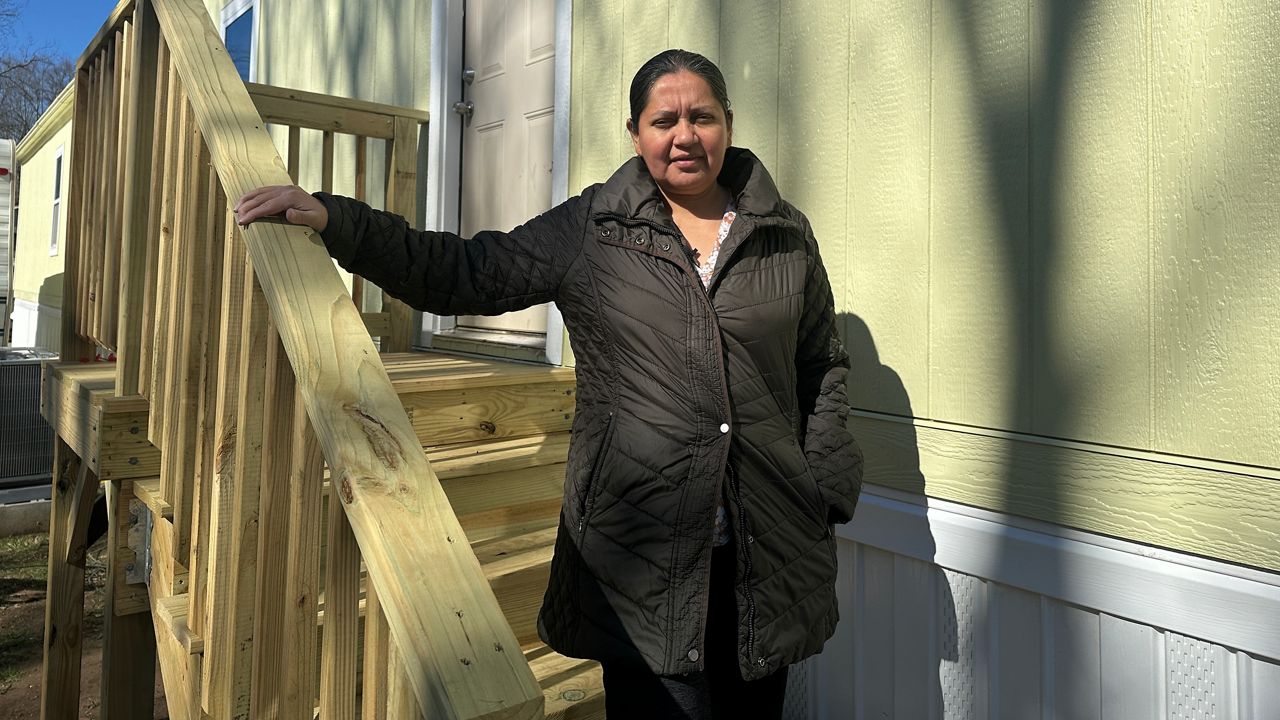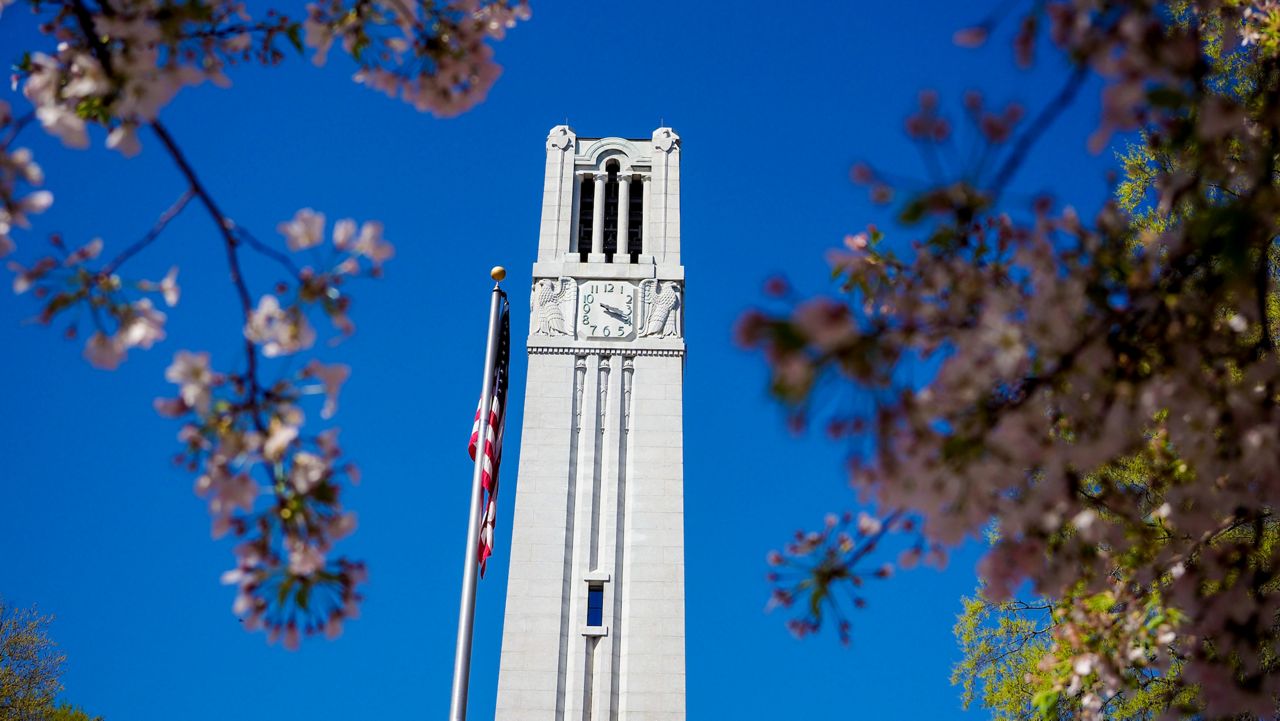GASTON COUNTY, N.C. — Gov. Roy Cooper recently signed a proclamation recognizing November 2022 as Family Engagement Month, which encourages families to be fully present in their child's educational journey.
This comes weeks after hundreds of North Carolina public schools were found to be under performing.
- Gov. Roy Cooper signed a proclamation in recognition of Family Engagement Month
- November is also recognized as National Family Caregivers Month
- A Gaston County mother says more needs to be done to support caregivers, especially those caring for children with disabilities
Throughout the month, participating organizations host activities and initiatives to help increase parents' engagement in a child's educational journey.
The Exceptional Children's Assistance Center, ECAC, is one group who's been supporting the engagement initiatives yearly.
ECAC is a statewide, nonprofit, parent organization committed to improving the lives and education for all children, and has a special focus on children with disabilities and/or special health care needs.
The Assistant Director of Programs Aimee Combs says family engagement has proved to be a critical part of a student's academic success.
"When families are involved, we see better attendance, less behavior [issues], better communication, higher graduation rates, students going on to pursue post secondary options," Combs said. "When you look at it as a shared responsibility, it benefits all."
November is also recognized as National Family Caregivers Month. During the engagement events, ECAC spotlighted caregivers who feel unseen in their communities, including those caring for a child with disabilities.
"When you think about family engagement, and you tie that into family members who are caregivers of children with disabilities, there's an added layer-there's more obstacles to face. If you're raising a child with a disability, you already have limited time or resources and you're still trying to be your own person too. Often times, families are not taking care of themselves, they're doing the engagement piece [but] many are full time caregivers and there's just not enough time in the day," Combs said.
Support for caregivers is an issue one mother says is a big problem statewide.
Rowena Barker and her husband John live in the Gaston County area.
"We love being together as a family," Barker said. "It does have its spicy moments— we are a complicated family."
Barker has three adult aged children: Crocker, Kruesi and Jack.
"We want them each to fulfill their potential and live their best life possible," Barker said. "Obtaining that is a completely different path for each child."
Crocker, 23, just graduated from Clemson University.
His siblings, Kruesi and Jack, have disabilities.
Kruesi, 26, has an intellectual disability.
"It's quite significant," Barker says. "She will never drive, but she does have a job and works around 28 hours a week."
Jack, 25, has charge syndrome.
"He is deaf, blind and nonverbal. He's considered to have significant and complex needs," Barker said.
Jack lives close by at a place that provides 24-hour medical care services for people with fragile and delicate medical conditions.
Kruesi lives at home with the Barkers.
Barker says for caregivers, navigating the educational and care systems is more layered for children with disabilities. It's a life Barker says many people may not understand.
"As time goes on and our children get older, it only becomes harder. As parents of kids with disabilities, you can't leave anything to fate. You have to plan with vigilance," Barker said.
ECAC put a spotlight on these concerns during Family Engagement Month by highlighting a documentary called "Unseen."
The film details the ups and downs of being a caregiver. ECAC staff say they hope the film will raise more awareness about the hardships caregivers are going through.
"They're often having not only a physical and mental health toll on them, they also have a financial burden," Combs said.
According to a study from The National Alliance for Caregiving and AARP, one in five Americans is providing unpaid care to an adult with health or functional needs. In that same report, 23% reported caregiving has made their own health worse.
Barker says one area that needs immediate improvement to support caregivers is the North Carolina Innovations Waiver. It's a Medicaid program that provides resources to people with intellectual and developmental disabilities so they can live in a community setting and have a more independent life. The innovations waiver also supports respite so caregivers can be provided relief from their duties.
"The innovations waiver, right now there are around 16,000 people on the wait list in our state," Barker said. "And there are so many more who aren't on the list yet."
Earlier this month, a superior court judge ordered steps for the N.C. Department of Health and Human Services to improve the innovations waiver and services for people with intellectual or developmental disabilities. The decision included an elimination of the waiting list in 10 years. The judge also ordered at least 3,000 people must be diverted or shifted to community-based programs by early 2031.
The DHHS Deputy Secretary for Medicaid Dave Richard previously said the department has concerns about the judge's order. At that time, Richard also said they hadn’t decided whether to appeal it.
Spectrum News 1 reached back out to DHHS to confirm if they'll be appealing the decision. The Office of Communications responded with this statement:
"We have received a copy of the Court’s order in this case. NCDHHS remains committed to supporting people with intellectual and developmental disabilities to live successful lives in the community. We are considering the Department’s options for appealing this decision and working closely with our counsel from the NC Attorney General’s office and the NC Solicitor General’s office to determine next steps."
With such a large gap in assistance right now, Barker says more caregivers must tell their stories so they can spark efficient changes in the system, while preventing another family from feeling unseen any longer.
"Unseen is a great word for it,' Barker said. "In our state, it does feel like we're in a crisis."
Caregiving has taken the national stage.
In a recent proclamation honoring caregivers, The White House acknowledges there's still a ways to go with improving care services for caregivers. However, the government says it's committed to the Department of Health and Human Services national strategy to support family caregivers, which outlines at least 350 actions to support caregivers financial security, health and well being.
"The Department of Health and Human Services’ National Strategy to Support Family Caregivers outlines nearly 350 actions the Federal Government can take to support family caregivers’ health, well-being, and financial security. Our American Rescue Plan provided $145 million to help the National Family Caregiver Support Program deliver counseling, training, and short-term relief to family and other informal care providers. We have expanded the Department of Veterans Affairs Program of Comprehensive Assistance for Family Caregivers so more veteran caregivers have the financial and mental health support they deserve, and we helped launch the “Hidden Helpers” initiative to serve the 2.3 million children now living with a disabled veteran," the White House proclamation read.
Spectrum News 1 has reached out to North Carolina Senators Thom Tillis and Richard Burr for a response on the caregiving issues discussed in this story. We'll provide an update pending those responses.
Facilitators with the "Unseen" documentary will be screening the film online until Nov. 30. Tickets are available on the documentary's website.










